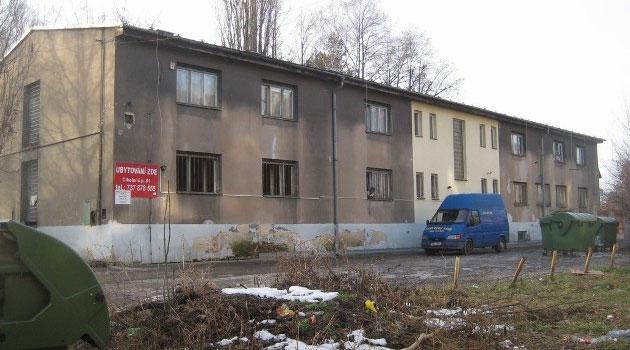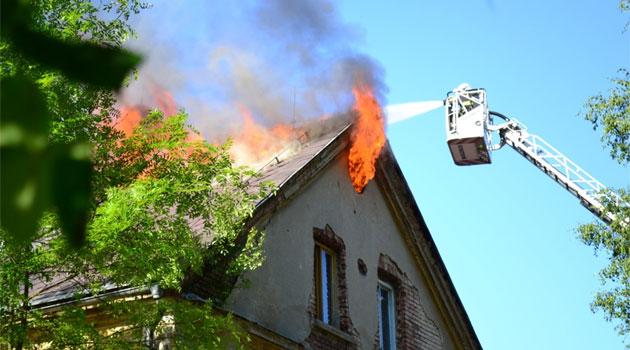Analysis: Czech society remains blind to how the poorest of the poor are (not) housed

The housing of the poorest of the poor in the Czech Republic is a testament to society’s blindness toward social problems, many of which are of tragic proportions. This is not just about the fact that there is practically no social housing or other affordable housing here, although that is understandably also part of the issue.
The main problem is the disdain and the feeling of superiority people here have vis-a-vis those living in the ghettos, Romani people included, and the conviction that the problems they have or that are associated with them can be corrected through repressive measures, not through a thoughtful social strategy. That disdain is the reason this country does not have a law on social housing.
No job = no normal housing
During the 1990s, a rather wild privatization method was underway in the Czech Republic, the consequence of which was that many enterprises and factories were first asset-stripped (“tunneled”, in the terminology of the day) and then closed. One of many examples was in Varnsdorf, where they immediately closed several factories and plants during a brief period of time, after which other towns in the Šluknov foothills area followed suit, with many people losing their jobs.
The first people to be fired were the “troublemakers”, most of them trade unionists, along with Romani people, because they have a difficult time defending themselves. Because there were not enough jobs for everybody, it was the Romani people in particular who were overlooked during the future hiring that did happen.
The Roma had to move away from the apartments where they had been living because, as long-term unemployed persons, they could no longer afford rent and utilities. They went to the residential hotels, because there the state would cover the additional funds they needed for their rent through housing subsidies.
In Varnsdorf specifically this was a municipally-owned residential hotel that dictated high rents from the very beginning. The facility had small rooms, about eight or nine meters square, each with a separate entrance lining a long, narrow corridor.
The entire facility was old, with paint chipping away from every surface, and the town invested nothing into the building maintenance. Each tenant paid CZK 2 900 [EUR 113] per person per month there – the per capita charge per child was half that.
In one of those tiny rooms as many as four people would be left to vegetate, so the town was making almost CZK 12 000 [EUR 470] per room, and if a single family wanted two rooms, the town would make about CZK 20 000 [EUR 775] monthly. However, even the state supplement for housing usually was not enough to cover that rent, so the tenants would make up the difference from their subsistence benefit, and for that reason they would still not have enough money left over for clothing, food, and other needs.
Contempt and disdain for Roma
The most famous examples of Romani people suffering contempt and disdain in recent decades are known to us from the cities of Ostrava and Ústí nad Labem. The neighborhood of Moravská Ostrava a Přívoz absolutely openly drove Romani people off of its territory so it could “revitalize the environment”, as the municipal authority phrased its declarations about the decision.
Romani residents had to move away from Přednádraží Street, from Palackého Street, and from the residential hotel on Božkova Street. Nobody took any interest in where the people who were being forced to leave might go.
They ended up either in other residential hotels that charged usurious rents in exchange for poor hygienic conditions, or living with their relatives in overcrowded apartments, or living directly on the street. Romea.cz has been speaking with these homeless people over time – some have managed to return to living in residential hotels, others have occupied old garage units where, at least during winter, they were able to heat the space with small portable stoves and to wash in a nearby creek.
Most of these people, however, have become classic homeless beggars. Some have become involved in criminal activity: drug dealing, pimping and prostitution, theft…
The system has ground these people, who were previously employed and rather satisfied, into smithereens. Politicians feel no sense of responsibility for the role they have played in this.
For example, former Ostrava city councillor Lukáš Semerák (from the “Ostravak” movement), gave the following justification for why he wanted to buy the buildings on Přednádraží Street and why he bought the property on Palackého Street and then evicted the Romani tenants from it: “My only intention is for the entire locality to get back on its feet and for adaptable citizens to come back here. Přívoz is one of the oldest parts of Ostrava, with a great history. Unfortunately, after the big floods in 1997 when Hrušov was submerged, the Romani people from there ended up living on Přednádraží Street. I am sorry that this neighborhood of Ostrava has now become a trash can… We wanted to arrange for a calm environment and to meet the management of the private Karel Engliš College halfway, because their headquarters is across the street from our building on Palackého Street, and instruction will begin there in September.”
As for the leadership of Ústí nad Labem during that same time (2011-2012), its approach was to stick its head in the sand like an ostrich. The city did nothing for the people there who were bereft of housing, or rather, it just offered them the addresses of residential hotels beyond the city limits.
City councilors there evidently wanted to get rid of their own responsibilities by transferring them onto the surrounding towns. What is happening there is not open racism, as it is in Ostrava, but an inability to take responsibility and an indifference to the fate of the poorest of the poor.
The town of Roudnice nad Labem evicted some Romani people in 2010 into the ghettos of surrounding towns and villages, with just a few moving into other apartment units in the town itself. Those whom the court evicted from their previous apartments ended up “at the sugar plant”, where the town owns a building with “holobyty” – units that are so basic they don’t even have flooring.
The reason the Romani people were moved out was so three buildings on Masaryk Street where they were living could be sold. The circumstances of that sale were also very suspicious.
We don’t want Romani people here
A deterrent example of what can happen in such situations is the case of a pensioner from Orlová, a widow who was taking care of her grandson, who has cerebral palsy. She was living temporarily in an apartment that was not fit for habitation.
“They said this was a first-class apartment – a comfortable one. The roof leaks, I have mold on the walls in the bathroom and bedroom, the tiles are constantly falling off the walls in the kitchen because of the damp, and what’s more, I just have cold water here,” she told news server Romea.cz in 2012.
Through a real estate agency she learned of an apartment in a cooperatively-owned prefabricated apartment building in a different part of town. Before she went to look at it, all of the communication was normal.
She liked the unit and she agreed with the employee of the real estate agency that she and her grandson would move in there. She dealt with the fees and the paperwork, got the key, and drove up to the building with a full moving truck.
Local tenants were waiting for her in front of the building. During 24 hours they had written up a petition saying that they did not want Romani neighbors and they refused to allow the lady and her gradnson in.
She didn’t want to go to the police because she hoped things might change over time, once she reached an agreement with the neighbors. She returned to her uninhabitable apartment, where of course they raised her rent, “as punishment”.
In the town of Litvínov and others, they have decided to punish Romani people for “crimes” such as sitting on staircases leading to apartment buildings, or on retaining walls near them, or on the lawn. The Romani people who violated the ordinances banning this sitting in selected localities (naturally, those where Romani people were living), paid fines of up to CZK 500 [EUR 20] for these offenses.
Rather a lot of Romani families moved away from there into even worse housing, as the pressure was the last straw for them, but in their new neighborhood they were persecuted daily by local police – who otherwise tolerated misdemeanor behavior committed by non-Roma. There are many such examples of people here trying to dislodge the Romani residents of their towns.
All of these examples are a testament to insensitivity toward the fates and suffering of others, of impoverished people, most of whom have darker skin. In Opava, for example, police officers failed to investigate several Molotov cocktails thrown at a building inhabited by Romani families, and the same happened in Moravský Beroun.
How this trampling of the Roma manifests today
In closing, let’s look at how this disdain for the poorest of the poor manifests itself today. Some towns are introducing housing benefit-free zones, addresses where state benefits to help people pay their rent cannot be disbursed.
In Kladno, for example, they declared the entire town such a zone. The Regional Authority overturned that decision, but that did not prevent Kladno from designating several housing benefit-free zones in localities where there are residential hotels.
Not disbursing these housing benefits would, in and of itself, be a correct decision because the money has just ended up in the pockets of traffickers in poverty, most of whom are not just local owners of apartment buildings and residential hotels, but who also tend to be loan sharks and to own casinos or gaming rooms. Of course, the problem is that these local mafiosi will never lower their rents, or will do so just symbolically, and the impoverished tenants will still have to pay excessive sums to live there – but now without aid from the state.
These people can, of course, move elsewhere, to a town without housing benefit-free zones. Given that there is practically no social housing in this country, however, they will eventually end up on the street again… and how things continue after that is something described above.
Evidently, for many politicians – at national level, or city level, or at the municipal department level – the solution to these problems is either to expel these people and their problems elsewhere, or to subject them to repression. Let somebody else take care of it.
Investment into affordable social housing would pay off for everybody in this blind society. Occasionally the phrase “vicious circle” is used where it does not fit, but in this case it is entirely appropriate.
